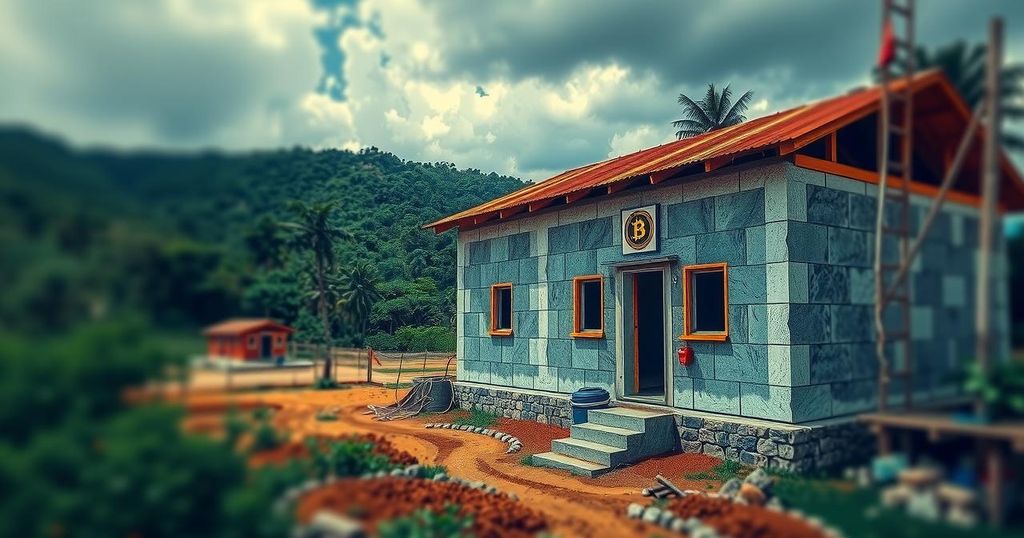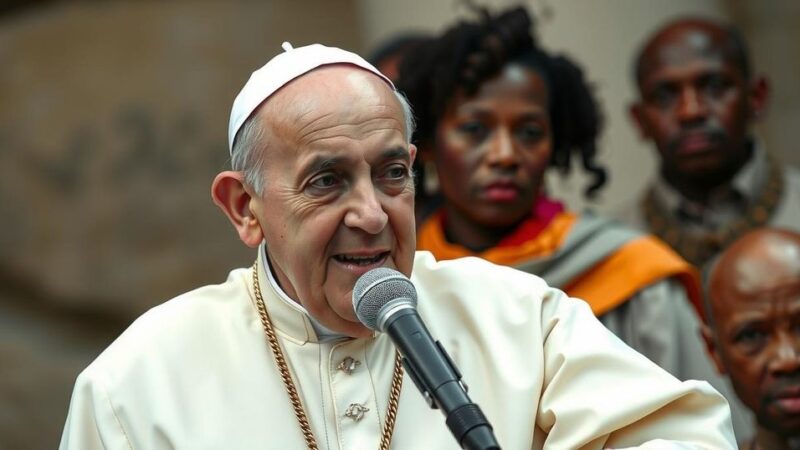President Nayib Bukele of El Salvador donated 2 Bitcoins to support the construction of 1,000 schools in Honduras, part of a larger initiative to promote Bitcoin adoption. Despite Bitcoin being legal tender, only 7.5% of Salvadorans use it for transactions. This donation reflects Bukele’s commitment to integrating cryptocurrencies into the economy as he aims for financial independence by 2025.
Recently, President Nayib Bukele of El Salvador has made significant strides in promoting Bitcoin through a donation of 2 Bitcoins, equivalent to approximately $134,000, aimed at constructing 1,000 schools in Honduras. This initiative aligns with a broader strategy of integrating cryptocurrencies into the national financial framework, a hallmark of Bukele’s presidency. Since March 2024, his administration has been acquiring one Bitcoin daily, bringing the total holdings to about 5,913 BTC, affirming a commitment to leveraging Bitcoin for economic innovation and development. Despite the legal status of Bitcoin in El Salvador, acceptance among the local population remains low, with only 7.5% utilizing it for transactions. This gap highlights the challenges the government faces in fostering widespread adoption of Bitcoin as a standard means of exchange, despite its legal tender status established in 2021. In tandem with local efforts, Bukele’s policies have garnered international interest, particularly in relation to Bitcoin bonds. His recent engagements include discussions with Argentina’s Vice President, Victoria Villaruel, indicating potential collaborative endeavors concerning the benefits of national Bitcoin adoption. Nevertheless, the journey toward achieving financial independence through cryptocurrency continues to be a work in progress, as Bukele aspires to elevate El Salvador’s status as a leader in the global cryptocurrency landscape by 2025 while reducing reliance on external debt through self-financed initiatives. While President Bukele’s vision encompasses broader economic sovereignty through Bitcoin integration, the road towards universal acceptance and financial freedom remains complex and evolving.
The introduction of Bitcoin as legal tender in El Salvador marked a pivotal moment in the region’s financial landscape, with President Nayib Bukele at the forefront of this transformation. His administration has sought to incorporate cryptocurrencies into everyday transactions and the country’s economic fabric. However, despite these efforts, the adoption rate among Salvadorans remains remarkably low—raising questions about the effectiveness of such policies and the barriers that inhibit widespread acceptance. Bukele’s commitment to Bitcoin extends beyond domestic use as he engages with regional leaders to foster international collaborations centered on cryptocurrency adoption.
In summary, President Bukele’s recent Bitcoin donation for school construction in Honduras underscores his administration’s ongoing efforts to integrate cryptocurrency into the financial system, despite facing challenges in local adoption. While international interest in El Salvador’s Bitcoin initiatives continues to grow, the disparity between government policy and public participation highlights the complexities of achieving financial inclusion through digital currency. Bukele’s ambitious objectives for financial sovereignty and innovation provoke both optimism and scrutiny as the nation navigates its path toward becoming a global leader in cryptocurrencies.
Original Source: www.crypto-news-flash.com







